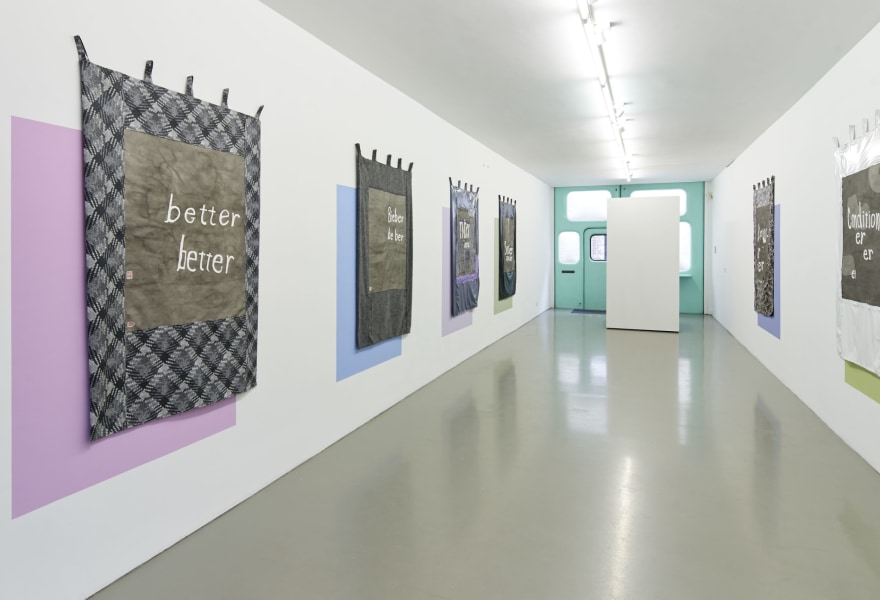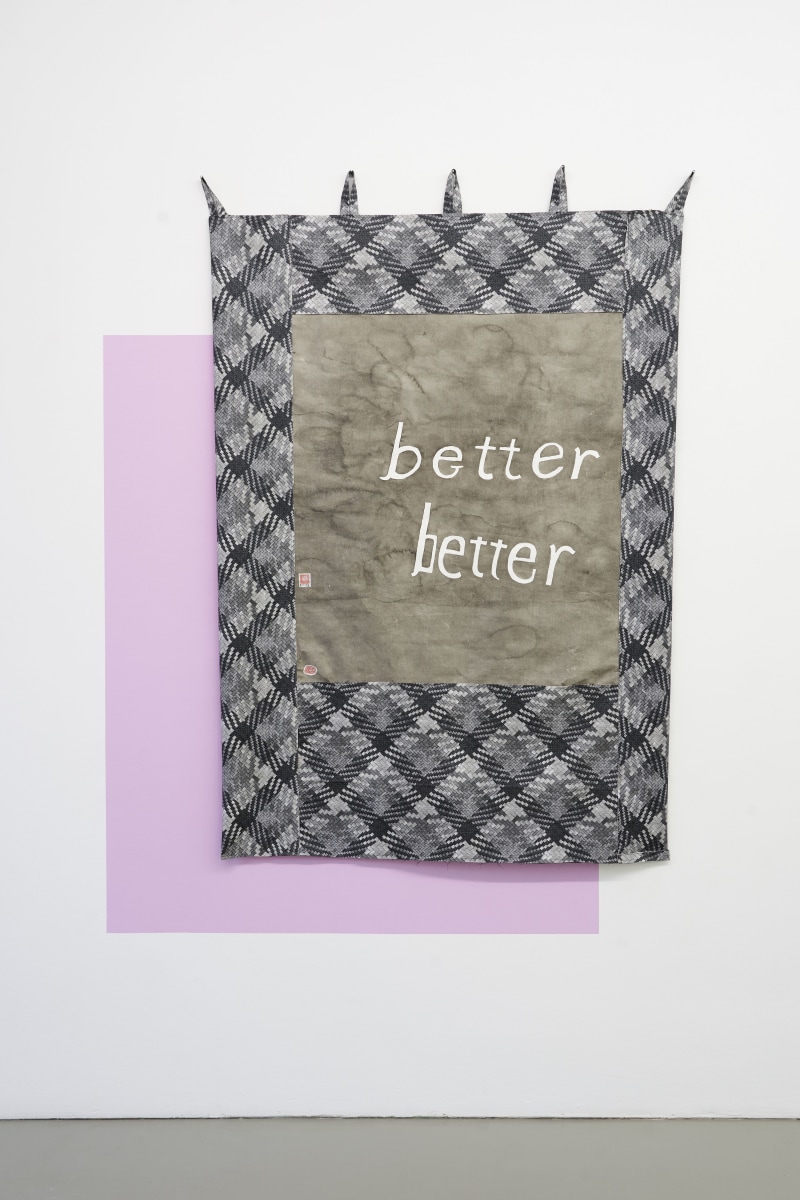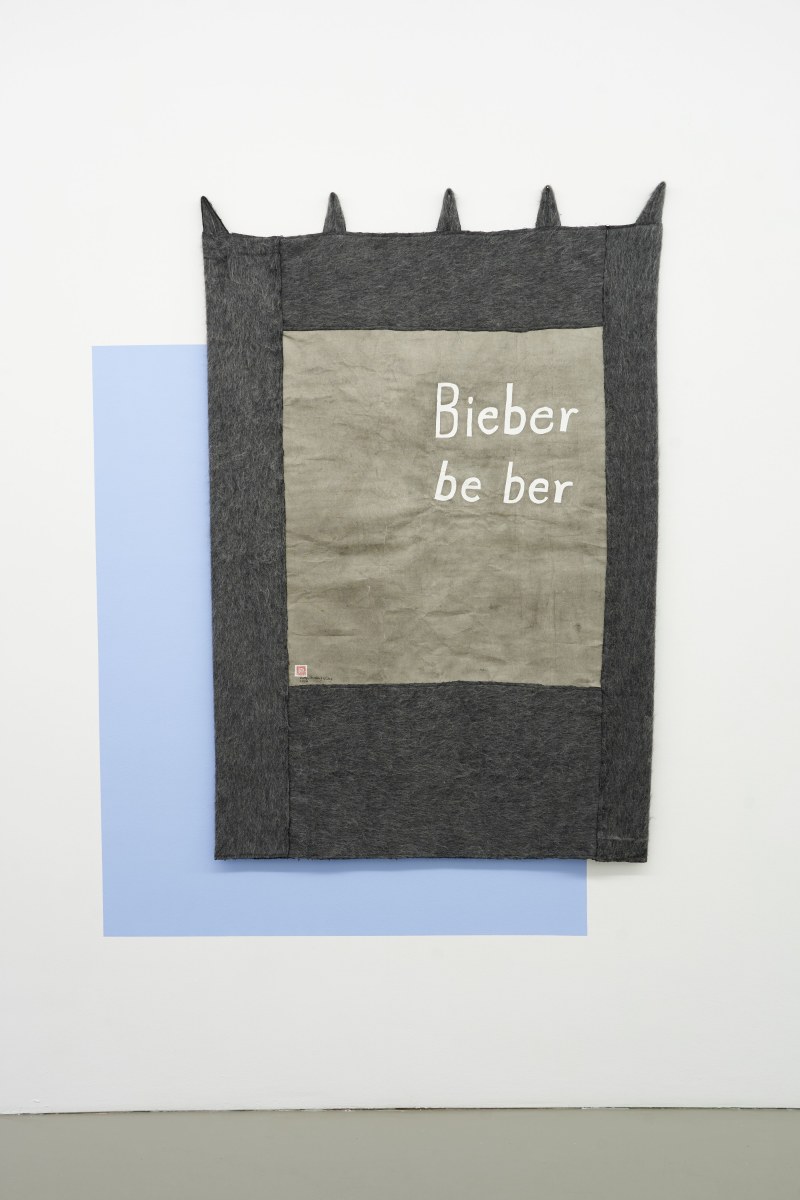31 july 2020, Flor Linckens
Evelyn Taocheng Wang - Summer Solo's at Galerie Fons Welters
Until September, a special summer program will be on show in Galerie Fons Welters on Fridays and Saturdays (and by appointment). During this time, the front space of the gallery will feature a number of short solo exhibitions by artists such as Maria Roosen, Berend Strik and Bob Eikelboom. Until August 8, the work of Evelyn Taocheng Wang will be on show.
Evelyn Taocheng Wang was born in 1981 in Chengdu in China, but she has been living and working in Rotterdam for several years now. Wang studied art in China, where she was forced to work within traditional and disciplined frameworks, both in terms of content and form. In her education, classical Chinese painting (using a communist visual language) took center stage - a genre that, in her words, thematically resembled state propaganda. At the age of 29, Wang traveled to Germany, where she studied at the Städelschule in Frankfurt. Two years later, in 2012, she started a residency at De Ateliers in Amsterdam.
In the often conceptual work of Evelyn Taocheng Wang, identity plays an important role - in particular the ways in which that identity is determined culturally. Gender, cultural stigmas and underlying power structures are also central themes. Wang uses her Asian background to look at Europe and European traditions from an almost deliberate outsiders perspective. Autobiographical experiences are mixed with fictional inventions, with references to Chinese literature and philosophy, as well as references to Western writers, and stories from friends and acquaintances. In her multidisciplinary work, we see clear traces of classical Chinese painting and traditional working methods and techniques. But they are always reinterpreted in a personal and contemporary way. Wang made a series of Greek amphorae (jugs) that she copied from a photo in a realistic way and connected to Asian traditions. She chose this subject because for her, it symbolizes Western civilization — even though she gradually adjusted her image of what "typical European art” is since coming to Europe. One of these amphorae is currently on display in the Bonnefanten Museum in Maastricht. Wang also made an (awardwinning) installation for which she recreated a Chinese massage parlor on the Amsterdam Red Light District. She had worked there for a little while in order to pay her bills. In this installation, she connected the massage practice with the body cult from classical (European) Antiquity.
Galerie Fons Welters is currently showing a recent series of works by Evelyn Taocheng Wang: a collection of banners in which ink drawings on rice paper are framed by various textiles such as faux leather, tiger prints, faux felt and latex. The central ink drawings, which consist of different layers of colour and ink, refer as much to Chinese painters from the 7th century as they refer to the abstract expressionism of Mark Rothko and the minimalism of Agnes Martin. In the series, Wang invokes language, specifically English words ending in -er. The choice for certain fabrics offers various layers of symbolism. These works create an interesting contrast between messiness and elegant sophistication, between different times, cultures (and identities) and traditions. Evelyn Taocheng Wang: “I understand fabrics and garments symbolically. They are like the colour of buildings, like an adjective describing its referent. They not only serve an aesthetic purpose but generate a mood or atmosphere. No matter western or eastern fashion history, garments have always been a means to express affiliation to concepts of identity, however, these signifiers are culturally specific and transform over time.” An interview about the exhibition can be found here.
Evelyn Taocheng Wang's work has been shown at the Stedelijk Museum, Manifesta 11 in Zurich, the Hermitage, De Hallen and in various group exhibitions in Rome, New York, Shanghai, Los Angeles, London, Manila, Milan and Düsseldorf. Her work can also be found in the collections of Centre Pompidou, The Art Institute of Chicago, Museum Voorlinden, the Centraal Museum and the Stedelijk Museum. Wang received several prestigious awards, including the Dorothea von Stetten Prize (for her interpretation of the massage parlor), the Volkskrant Visual Arts Prize and the Dolf Henkes Prize. When she received the ABM Amro Art Prize in 2019, the jury report offered praise: “The jury was captivated by the ways in which Wang associates the autobiographical in an associative way with myths, fairy tales, literature and (art) history.” [ …] "But ultimately it is Wang's virtuoso style and her strong sense of combining different materials and objects with which, according to the jury, she entices the viewer into that ambiguous world.”



